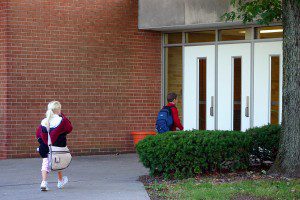Addressing Sexual Harassment in Schools to Avoid Lawsuits

The city settled the case and as part of the settlement the city agreed that the superintendent would approve appropriate training for the school’s principal who was overzealous in applying the school’s sexual harassment policy. The superintendent, meanwhile, was underzealous about training and supervising the principal. The school may have had a reasonable sexual harassment policy, but the principal might not have had the right understanding of the policy as it applied to six-year-olds to reasonably implement it. The result was the expenditure of a lot of money and time when the principal could have dealt with the situation simply by having a “teaching moment” discussion with both students, especially the six year old explaining that what he did was inappropriate and ask the parents to follow up at home. Children this age don’t even know what sexual harassment is.
In another case, a school was ordered to pay $68,000 to a former student for failing to take reasonable actions to stop other kids from harassing him over their perception of his sexual orientation. The school disciplined the students and required them to attend counseling, but the harassment continued. The court determined that even though the school made some effort to end the harassment, its actions were ineffective.
Schools need to take reasonable and effective measures to protect students from harm. The points of contention were whether school officials responded quickly and adequately to protect the student from harm. Was the school’s response reasonable? The school thought so because it followed the student discipline code. Was it effective? When the harassment continued, the school didn’t modify its approach. Thus, the court concluded, the faculty’s actions were not only ineffective but also not reasonable. This school may have been zealous in its attempt to discipline students — but was underzealous in its determination to appropriately resolve the issue and protect the student from harm.
A teacher in another case was accused on several occasions of inappropriately touching students. Investigation by the district revealed nothing of a sexual nature. Later, the teacher asked a student to report to his office. There, the student claimed, the teacher sexually touched her and another student, who was the plaintiff in this case.
An investigation by law enforcement and child services personnel into this incident revealed that this teacher had, in fact, victimized several other students. The teacher was incarcerated for 10 years — but the school district was found not liable for the educator’s actions, either under Title IX (see our previous article on Title IX) or Section 1983. The court could attach no liability for the Title IX claim because school officials had no actual knowledge that this teacher had been engaged in sexual misconduct. Addressing the Title IX action, previous reports about touching had been investigated and resolved. The school determined that there was no merit to the reports. Therefore, the school could claim it had no actual knowledge for sexual misconduct. The court ruled that the Section 1983 substantive due process claim would not survive the deliberate indifference test because there was no knowledge of sexual misconduct and there was no reckless disregard for student safety. The school’s decisions about the teacher’s status after the initial investigation were based on what it knew, the court ruled, so those decisions were appropriate under the circumstances.
A school can never know everything that goes on between teachers and students. Could the school officials have watched the teacher more carefully following the initial complaint of him touching students? Yes, and that would have been an administrative decision. Was it mandatory? No. Would it have curtailed his inappropriate conduct with students? Maybe. Even with closer supervision after the first complaint, however, many teachers just don’t act in a sexual way with students in front of administrators or other teachers.
Questions regarding Sexual Harassment in Schools
The questions in all three of these cases are:
- Did school officials act reasonably based on what they knew at the time?
- Were their actions effective in ending the harassment and protecting the student from harm?
If, after a reasonable investigation, there is a determination that an observation or complaint does not constitute sexual harassment and the administration responds on the basis of that determination, then the school may withstand an allegation that it acted deliberately indifferent. On the other hand, if it can be demonstrated that there was no investigation, that an investigation was not reasonably conducted based on what was known, or that the investigation determined that sexual harassment took place but the school failed to take any or effective action, then the school might not withstand an allegation that it acted deliberately indifferent.
The administrative test, therefore, is:
- Was there an observation or complaint of sexual harassment?
- If so, did the school administration investigate the issue?
- Was the conclusion reasonable, based on the information learned from the investigation?
- Did the school administration take appropriate action to end the harassment?
- Was the action effective in ending the harassment?
Is it reasonable for school administrators to conclude automatically that a six-year-old’s way of touching another student is sexual harassment? Is it enough for a school administration only to suspend a student who harasses another over his sexual orientation if the harassment continues? Being overzealous or underzealous can cause problems for schools if lawsuits are initiated. In such cases, a careful review and assessment by attorneys representing both the plaintiff and the defendant can be an effective way to resolve disputes.


